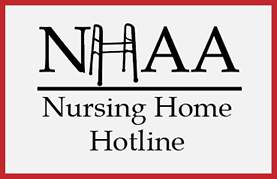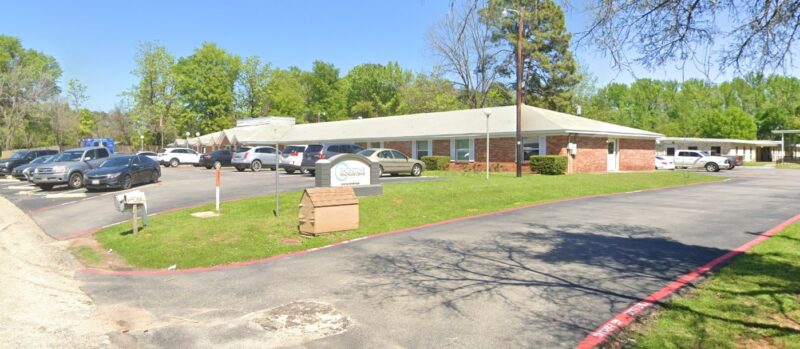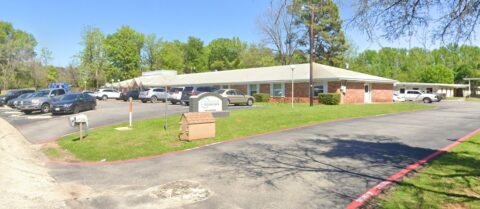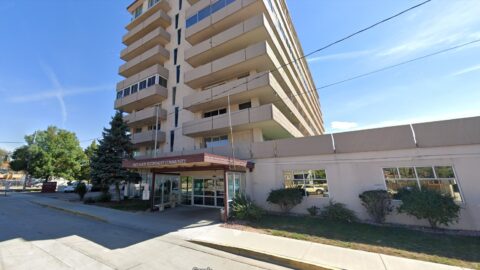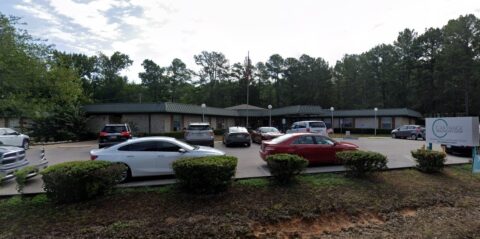State Findings:
Immediately tell the resident, the resident’s doctor, and a family member of situations (injury/decline/room, etc.) that affect the resident.
**NOTE- TERMS IN BRACKETS HAVE BEEN EDITED TO PROTECT CONFIDENTIALITY** 49017
Based on interview and record review, the facility failed to notify the resident’s physician and
responsible party when there was a significant change in the physical status for 1 of 14 residents
(Resident #15) reviewed for notification of changes.
The facility failed to ensure that the physician and the responsible party was notified of resident
#15’s change in condition when the resident experienced a choking incident on 4/1/2024.
An IJ was identified on 04/04/2024. The IJ template was provided to the facility on [DATE] at .
While the IJ was removed on 04/05/2024, the facility remained out of compliance at a scope of isolated and severity of no actual harm with the potential for more than minimal harm because of continued monitoring the effectiveness of the corrective systems.
This deficient practice could place residents at risks for a delay in medical treatment, which could lead to worsening of their condition, hospitalization , or death.
The findings include:
Review of resident #15 face sheet reflect that he is an [AGE] year-old male admitted on [DATE]. His diagnosis include unspecified dementia with other behavioral disturbances (dementia is characterized by a decline in cognitive abilities that impacts a person’s ability to perform everyday activities and behavioral disturbances can include verbal or physical aggression, incontinence, agitation, sleep disturbances or changes in appetite), dysphagia, oropharyngeal phase (a swallowing disorder that affects the mouth and throat characterized by difficulty initiating a swallow, coughing, choking or aspiration.) , cognitive communication deficit (difficulty with communication that is caused by a problem with thinking), and gastro-esophageal reflux disease (when stomach acid repeatedly flows back into the tube connecting your mouth and stomach).
Record review of resident#15 Quarterly MDS dated [DATE], indicated that the resident had a BIMS
score of 06, indicating severely impaired cognition. It indicated that resident requires substantial/maximal assistance with eating (helper does not than half the effort) and that he is dependent on staff for all activities of daily living.
Record review of the care plans for resident #15 dated 4/1/2024 indicated that resident had the potential for weight loss related to dementia, feeding difficulties. Diet change was noted in care plan on 4/1/2024 for dysphagia puree with thickened liquids and on 4/2/2024 dysphagia puree with nectar thickened liquids. Nursing approaches included provide physical help assistance for meals dated 12/21/2023. Resident also has a care plan dated 3/27/2024 for risk for respiratory distress related to history of aspiration pneumonia (an infection of the lungs caused by inhaling saliva, food, liquid, or vomit).
Record review of nurse’s progress notes dated 4/1/2024 at 08:02 AM entered by LVN A, indicated that the resident had choked on every single bite of food .at breakfast the nurse charted that the MDS coordinator gave the OK to downgrade the residents diet to pureed with thickened liquids until speech can assess the resident. There was not any documentation that resident primary care provider was notified of incident and no documentation of responsible party notified.
During dining room observation on 4/1/2024 at 12:00 PM, resident #15 was observed sitting at a table alone. Staff served resident his meal that was pureed and thickened liquids, the tray card indicated that resident diet was correct. Observed resident #15 feeding himself without staff assistance or verbal cueing. Resident remained at the dining room table alone. Staff assisted resident out of dining room when he finished eating.
During dining room observation on 4/2/2024 at 8:30 AM and 12:00 PM, resident #15 was observed sitting at table alone, staff served his meal and resident ate both meals without assistance and verbal cueing. Resident was observed eating quickly, taking large bites of pureed food, and occasionally coughing when he swallowed.
During an interview on 4/3/2024 at 2:30 PM, MDS coordinator said she was an LVN. She said she was in the facility on 4/1/2024 during the time that resident #15 was eating his breakfast. She said that LVN A reported to her that the resident was choking and coughing during breakfast, and she instructed her to change his diet to pureed with thickened liquids until speech therapy could evaluate him. She said that nurses are allowed to downgrade resident diets if needed. She said that
the doctor should have been notified and that the nurse should have documented notification in the
nurse’s progress notes. She said that the resident has a history of eating too fast and requires staff to remind him to slow down when eating.
During an interview on 4/4/24 at 2:47 PM, the DOR said she was a COTA. She said she was present on 4/1/2024 in the dining room when Resident #15 was eating. She said I feel like the nurses note is an over exaggeration. He was not choking. She said that the resident takes large bites and swallows his food without chewing. She said that the resident eats too fast. Prior to the pureed diet, the resident was on a mechanical soft diet with thin liquids. She said that the resident was put on the mechanical soft diet after a modified barium swallow (an analysis of swallowing) was done in November 2023. She said that the resident was scheduled for the speech therapist to evaluate on
Friday (4/5/2024) or Monday (4/8/2024). She said that the speech therapist was in the facility
daily but had not evaluated the resident yet because it would take treatment time from residents
that are already scheduled. She said that she educated the nurse on Monday, 4/1/2024 during
breakfast. She said that because the nurse was a traveler, she was not familiar with the resident.
She said that the resident was not choking on every bite and that the resident was eating fast and
cough one time after swallowing and would continue to eat and cough after each swallow. She said
that she believed that she was able to recognize if the resident had aspirated (when food or liquid
enters the lungs) due to her experience and familiarity with the residents.
During an interview on 4/4/24 at 2:50 PM, LVN A said that she was an agency nurse and had only
worked in the facility a few times. She said that she worked on Monday 4/1/2024 and Tuesday 4/2/2024. She said that on Monday, 4/1/2024 she was in in the dining room when Resident #15 was eating breakfast. She said that Resident #15 was eating scrambled eggs, hash browns, softened rice crispies cereal with milk. She said that the Resident #15 was choking on every bite that he
consumed . She said that the resident was shoveling food into his mouth. She said that she made a
nursing judgement and downgraded the resident’s diet from mechanical soft to a pureed diet. She
said that she spoke with the MDS Coordinator, and she had told her to downgrade his diet. She said
that she thought that the MDS coordinator was going to notify the doctor and anyone else that
needed to be notified. The nurse said that while the resident was coughing, he had a runny nose and watery eyes.
During an interview on 04/04/24 at 4:42 PM , DON said that she would consider a medical emergency constituting immediate physician notification to include: a resident not breathing, bleeding profusely, having no pulse, unable to awaken, or anything that could constitute an immediate threat to life or anything that could cause a loss of life.
During an interview on 4/4/24 at 4:52 PM, the NP said that the facility notified her earlier in the
week and reported that Resident #15 was having difficulty swallowing. She said that she ordered a
downgrade of diet at that time from a mechanical soft to a pureed diet and for speech to evaluate
and treat as indicated . When asked if it was reported that Resident #15 was choking during his
meal, she said No, if they would have reported choking while eating, I would have ordered a chest
x-ray to rule out aspiration. The NP said that swallowing difficulties were the only thing
reported.
During an interview on 04/04/24 at 4:46 PM, LVN C said that she would consider a resident choking to be a medical emergency.
During an interview on 4/5/2024 at 3:00 PM, the Regional Nurse said that the nurses in the facility were allowed to downgrade a resident’s diet using nursing judgement. She said that the doctor and the speech therapy were involved in evaluating residents that have a change in condition like the ability to swallow.
During an interview on 4/5/24 at 3:53 PM, the DON said that her expectations were that the charge nurse was to report any changes in the resident’s baseline. She expected that significant changes as well as minor changes from baseline should be reported to the MD. She said that failure to notify the physician of any changes in condition could result in improper and or timely treatment for the resident.
During an interview on 4/5/24 at 4:26 PM, the Administrator said that his expectations were that
the physicians are notified, the event was charted, the responsible party to be notified of changes
in condition and any new orders, that the changes and any orders be placed on the 24-hour report.
He expected that any changes be reported and discussed in the morning meetings. He said that
failures to notify the doctor of changes in condition can result in the resident not getting the
appropriate care.
Record review of the facility policy titled Change in a Resident’s Condition or Status dated
4/20/2023, the policy statement is our facility promptly notifies the resident, his attending
physician, health care provider and the resident representative of changes in the resident’s
medical condition and/or status. Policy interpretation and implementation included a significant
change of condition is a major decline . that will not normally resolve itself without intervention
by staff . and except in medical emergencies, notifications will be made within twenty-four hours
of a change .
Record review of facility document titled Emergency Procedure- Choking revised March 2011 indicated report results promptly to the supervisor and attending physician.
This was determined to be an Immediate Jeopardy (IJ) on 4/4/2024 at 4:45PM. The facility’s
Administrator and Director of Regulatory Compliance were notified. The Administrator was provided with the IJ template on 4/4/2024 at 5:27 PM.
Develop and implement a complete care plan that meets all the resident’s needs, with timetables and actions that can be measured.
**NOTE- TERMS IN BRACKETS HAVE BEEN EDITED TO PROTECT CONFIDENTIALITY** 46273 47339 49017
Based on observations, interview and record review, the facility failed to develop and implement a
comprehensive person-centered care plan for each resident that included measurable objectives and timeframes to meet a resident’s medical, nursing, mental, and psychosocial needs for 4 of 14
residents (Residents #15, Resident #24, Resident #25, and Resident #33 ) reviewed for care plans.
On 4/1/24 the facility failed to implement care plan interventions for Resident #15 of providing
physical help with meals and notifying MD of changes in abilities .
On 4/2/24 the facility failed to implement care plan interventions for Resident #25 of their
therapeutic diet of fortified foods during the lunch meal.
On 4/3/24 the facility failed to implement care plan interventions for Resident #24 of required
supervision and 1 person assistance with meals.
The facility failed to implement care plan interventions for Resident #24 of weekly weights x4
weeks. Resident #24 was missing weekly weights on weeks of 1/22/24 and week of 2/5/24.
The facility failed to implement care plan interventions for Resident #33 of weekly weights x4
weeks. Resident #33 was missing weekly weights on weeks of 2/12/24 and week of 2/26/24.
These This failures could place residents in the facility at risk of not receiving the necessary
care to meet their identified needs. nutritional needs.
An Immediate Jeopardy (IJ) was identified on 04/04/2024 at 9:57 a.m. The IJ template was provided to the facility on [DATE] at 9:57 A.M. While the IJ was removed on 04/05/2024 at 05:20 p.m., the facility remained out of compliance at a scope of pattern and a severity level of no actual harm with the potential for more than minimal harm that is not immediate jeopardy, because all staff had not been trained on weights, dietician recommendations, preferences versus orders, meal cards, the dietary process, pulling up resident profiles, and comprehensive care planning.
1. Review of resident #15 face sheet reflect that he is an [AGE] year-old male admitted on [DATE].
His diagnosis include unspecified dementia with other behavioral disturbances (dementia is characterized by a decline in cognitive abilities that impacts a person’s ability to perform everyday activities and behavioral disturbances can include verbal or physical aggression, incontinence, agitation, sleep disturbances or changes in appetite), dysphagia, oropharyngeal phase (a swallowing disorder that affects the mouth and throat characterized by difficulty initiating a swallow, coughing, choking or aspiration.) , cognitive communication deficit (difficulty with
communication that is caused by a problem with thinking), and gastro-esophageal reflux disease (when stomach acid repeatedly flows back into the tube connecting your mouth and stomach).
Record review of resident#15 Quarterly MDS dated [DATE], indicated that the resident had a BIMS
score of 06, indicating severely impaired cognition. It indicated that resident requires substantial/maximal assistance with eating (helper does not than half the effort) and that he is dependent on staff for all activities of daily living.
Record review of the care plans for resident #15 dated 4/1/2024 indicated that resident had the
potential for weight loss related to dementia, feeding difficulties. Diet change was noted in care
plan on 4/1/2024 for dysphagia puree with thickened liquids and on 4/2/2024 dysphagia puree with nectar thickened liquids. Nursing approaches included provide physical help assistance for meals dated 12/21/2023.
Record review of resident #15 physician orders with a start date of 4/02/2024 diet of dysphagia
puree with nectar thick liquids.
2. Record review of a facility face sheet dated 4/2/24 for Resident #25 indicated that she was an
[AGE] year-old female admitted to the facility on [DATE] with diagnosis of dementia.
Record review of a Quarterly MDS assessment dated [DATE] for Resident #25 indicated that Brief
Interview for Mental Status should not be conducted due to resident being rarely/never understood. Question C1000 indicated that resident had severely impaired cognition.
Record review of physician orders for Resident #25 indicated that she had the following order:
Diet: Regular diet, fortified foods; Texture: Mechanical soft; Fluid consistency: Thin dated 2/2/24.
Record review of a comprehensive care plan for Resident #25 dated 3/31/24 indicated that she had
experienced weight loss and was to receive fortified food with all meals.
Record review of Resident #25’s weights located in her electronic medical record indicated that on
10/05/2023, the resident weighed 138.5 lbs. On 04/03/2024, the resident weighed 110.8 pounds which is a -20.00 % loss in 180 days.
3. Record review of a face sheet for Resident #24 dated 4/03/2024 indicated that he was a [AGE]
year-old male admitted to the facility on [DATE] with diagnoses including: Hemiplegia following
cerebral infarction affect left non-dominant side (paralysis or partial or total body function on left side of the body), partial loss of teeth, abnormal weight loss, and cognitive communication deficit (difficulty with thinking and how someone uses language).
Record review of a Quarterly MDS assessment dated [DATE] for Resident #24 indicated that he had a BIMS score of 14, indicating his cognition was intact. Section GG of same MDS assessment indicated that he had received setup or clean-up assistance with eating.
Record review of a care plan dated 4/04/2023 for Resident #24 indicated had a problem with nutritional status with interventions that included: Weigh me at least once a month and weekly if I show a significant weight loss. Resident #24 had a problem with ADL’s Functional Status/Rehabilitation Potential with interventions that included: Resident requires supervised assist-limited x1 with eating.
Record review of facility weight variance report dated 9/01/2023 to 3/10/2024 revealed Resident #24’s weights were:
10/05/2023- 241.4
11/02/2023- 243.2
12/05/2023- 248.6
01/03/2024- 210.0 indicating a 15.5% loss in 29 days.
01/18/2024- 215.6
01/25/2024- 214.0
02/01/2024- 218.2
03/03/2024- 218.2
4.Record review of face sheet for resident #33 indicated that he was a [AGE] year old male admitted on [DATE] with diagnosis of unspecified dementia (symptoms that affect memory, thinking and social skills), dysphagia, oropharyngeal phase (a swallowing disorder that affects the mouth and throat characterized by difficulty initiating a swallow, coughing, choking or aspiration.), cognitive communication deficit (difficulty with communication that is caused by a problem with thinking), and gastro-esophageal reflux disease (when stomach acid repeatedly flows back into the tube connecting your mouth and stomach).
Record review of resident #33 significant change MDS dated [DATE] indicated that resident has a BIMS score of 14 indicating that he is cognitively intact. It indicated that he was independent with eating and required supervision or set up assistance with activities of daily living.
Record review of care plan for resident #33 dated 01/30/2024 resident was care planned for undesired weight loss with approach of weekly weights. Nutritional status care plan of mechanically altered diet with ground meat. Care plan dated 3/13/2024 for fortified foods. Care plan for set up assistance with meals reviewed.
Record review of resident #33’s physicians orders dated 3/13/2024 diet order for fortified foods, mechanical soft with ground meat. Review of order dated 11/28/2023 to discontinue double portions.
Record review of facility weight variance report dated 12/12/2023 to 3/3/2024 revealed resident #33 weights were:
12/12/2023- 233.0
1/3/2024- 184.00- indicating a 21.2% loss in 22 days.
2/1/2024- 204.00 indicating a 11.0% gain in 29 days.
2/19/2024- 197.00
3/3/2024- 196.8
Record review of facility weight variance report revealed that resident was not weighed weekly as
ordered on 1/30/2024 with weight not obtained during the week of 2/12/2024 and 2/26/2024.
During dining room observation on 4/1/2024 at 12:00 PM, resident #15 was observed sitting at a
table alone. Staff served resident his meal that was pureed and thickened liquids, the tray card
indicated that resident diet was correct. Observed resident #15 feeding himself without staff
assistance or verbal cueing. Resident remained at the dining room table alone. Staff assisted
resident out of dining room when he finished eating.
During dining room observation on 4/2/2024 at 8:30 AM and 12:00 PM, resident #15 was observed sitting at table alone, staff served his meal and resident ate both meals without assistance or verbal cueing. Resident was observed eating quickly, taking large bites of pureed food and
occasionally coughing when he swallowed.
During an observation and interview on 4/2/24 at 12:30 pm Resident #25 was observed sitting up in wheelchair in dining room being assisted with lunch meal by staff member. Her tray card was
observed to say fortified food but there was no fortified food with resident’s meal. Dietary manager said that Resident #25’s fortified food must have gotten missed. She went to kitchen and returned to dining room with a cup of fortified soup for Resident #25.
During an observation on 4/03/2024 at 08:50 AM Resident #24 observed eating breakfast in room with door closed and no supervision or assistance.
During an observation of Resident #24’s lunch meal on 4/03/2024 at 12:00 PM revealed Resident #24 was pushed via wheelchair to the main dining room by therapy. Resident #24 requested a hamburger for lunch. The Administrator verbally communicated residents request to the dietary staff. Resident was served a hamburger with potato chips, yogurt, and fortified mashed potatoes. Resident #24 picked up hamburger and put the entire hamburger in his mouth at one time, he then started placing potato chips in his mouth with the hamburger. Resident #24 took approximately 10-15 minutes to swallow the food in his mouth. Resident did not touch his fortified mashed potatoes. Resident #24 was not assisted by staff, no verbal cues were given by staff, and fortified food was never encouraged by staff.
During an interview with the MDS coordinator on 4/3/2024 at 2:30 PM, she said she was an LVN. She said she was in the facility on 4/1/2024 during the time that resident #15 was eating his breakfast. She said that LVN A reported to her that the resident was choking and coughing during breakfast, and she instructed her to change his diet to pureed with thickened liquids until speech therapy could evaluate him. She said that nurses are allowed to downgrade resident diets if needed. She said that the doctor should have been notified and that the nurse should have documented notification in the nurse’s progress notes. She said that the resident has a history of eating too fast and requires staff to remind him to slow down when eating. The MDS Coordinator said she reviewed and updated care plans with every MDS assessment. She said any nurse could update the resident care plans based on physician orders, and interactions or observations of the resident.
This was determined to be an Immediate Jeopardy (IJ) on 04/04/2024 at 9:57 a.m. The Administrator was notified. The Administrator was provided with the IJ template on 04/04/2024 at 9:57 a.m.
Provide enough food/fluids to maintain a resident’s health.
**NOTE- TERMS IN BRACKETS HAVE BEEN EDITED TO PROTECT CONFIDENTIALITY** 43994 46273 47339 49017
Based on observations, interviews, and record review the facility failed to maintain acceptable
parameters of nutritional status, such as usual body weight or desirable body weight range, and
offered a therapeutic diet when there was a nutritional problem and the healthcare provider orders
a therapeutic diet for 15 of 34 residents (#33, #24, #29, #9, #25, #34, #22, #17, #15, #18, #35,
#6, #13, #31, and #1) reviewed for weight loss and nutrition.
1. The facility failed to communicate with dietary staff on dietary changes.
2. The facility failed to ensure systems were in place to monitor for weight changes.
3. The facility failed to ensure residents were weighed according to physician orders and dietary
recommendations for Resident #33, #24, #29 and #9.
4. The facility failed to provide assistance and supervision with meals as indicated by resident
care plans for Resident #24 on 4/3/2024.
5. The facility failed to provide residents with therapeutic meals as indicated by the physician
orders, dietary recommendations, and dietary special preferences for Residents #34 on 4/1/2024;
Residents #25, #9, #31, #17, #1, #24, #15, #18, #35, #6, #13, #33 on 4/2/2024; and Resident #22 on 4/3/2024.
6. The facility failed to obtain updated baseline weights after the facility scale was replaced on
3/12/2024 until state surveyor intervention.
On 4/4/2024 at 8:15 AM an Immediate Jeopardy (IJ) situation was identified. While the IJ was
removed on 4/5/2024 at 5:20 PM, the facility remained out of compliance at a potential for harm
with a scope identified as a pattern due to the facility continuing to monitor the implementation
and effectiveness of their Plan of Removal.
These failures placed all residents at risk of severe weight loss, delayed interventions,
hospitalization , worsening health condition, and death.
During an interview on 4/2/2024 at 04:00 PM, the ADON said she had been in the ADON position since December 2023. She said that she was responsible for reviewing the residents’ weights and entering the information into the electronic record. She said that she reviewed the weights and was
responsible for re-weights and assuring that orders for weekly weights were done. She said that if a resident had a significant weight loss she notified the Registered Dietician, the PCP, and the resident’s responsible party. She said that until March 2024, different staff were responsible for weighing residents monthly. She said that the issue of resident weight loss and weighing residents was part of a performance improvement plan and that the actions included had a designated employee to weigh the residents. She also said that a new scale was purchased. She said that residents on weekly weights were now being done by the designated employee and that a new tracking system was being developed. The ADON said that she was also responsible for reviewing the dietary recommendations and making sure that recommendations were communicated to the PCP. She said that she was responsible for writing any orders related to the registered dieticians’ recommendations and communicating any changes to the dietary.
Your Experience Matters
...and we want to hear it.
NHAA is here to assist families, residents, and the community by sounding the alarm on issues like those found above. This nursing home and many others across the country are cited for abuse and neglect.
If you have or had a loved one living in this nursing home or any other nursing home where you suspect any form of abuse or neglect, contact us immediately.
We have helped many already and we can help you and your loved one as well by filing a state complaint, hiring a specialized nursing home attorney or helping you find a more suitable location for your loved one.
You can make a difference, even if your loved one has already passed away.
Please give us a call at 1-800-645-5262 or fill out our form detailing your experience.
Personal Note from NHA-Advocates
NHAA shares with all the families of loved ones who are confined to nursing homes the pain and anguish of putting them in the care of someone else. We expect our loved ones to be treated with dignity and honor in the homes we place them. We cannot emphasize enough to family members of nursing home residents; frequent visits are essential to our loved ones’ well-being and safety.
If you are struggling and upset, click here to understand your options, or contact us through our contact form or call our toll free hot line number: 1-800-645-5262.
